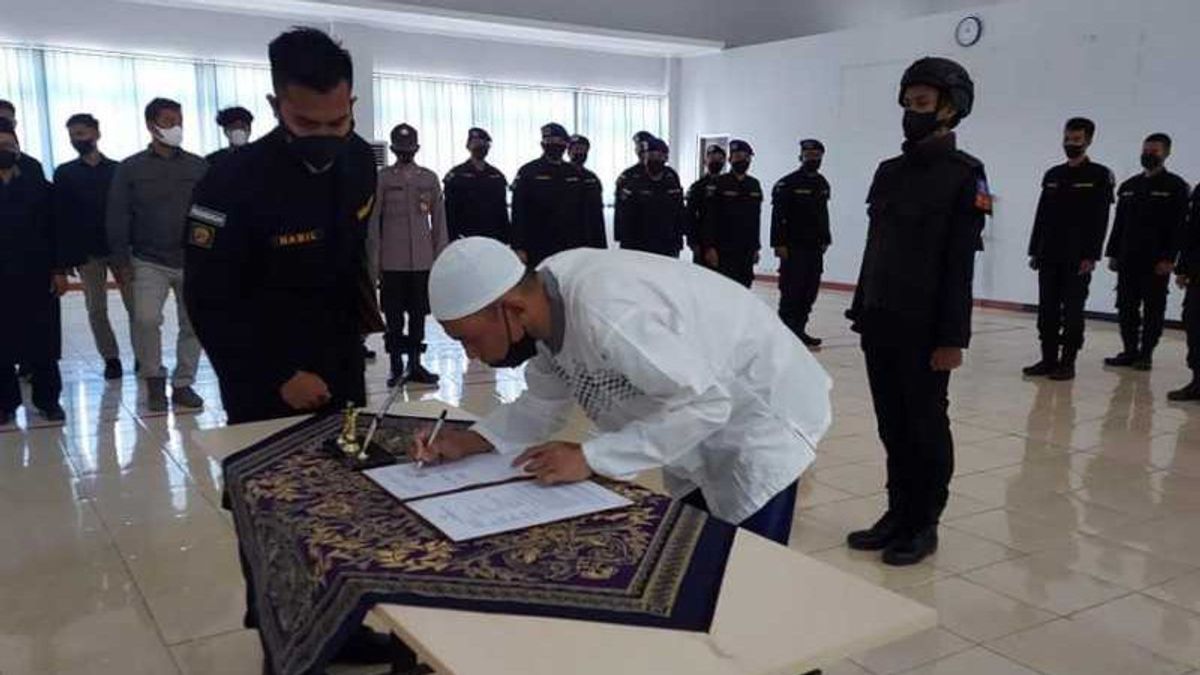JAKARTA - Member of Commission III of the DPR Didik Mukrianto asked the National Police and the National Counterterrorism Agency (BNPT) to increase vigilance against potential threats of terrorism, to maintain and ensure public security.
"The suicide bombing incident at the Astanaanyar Police must be the government's concern and vigilance. Eradication of terrorism must be carried out massively and continuously starting from prevention, prosecution, and recovery," said Didik in Jakarta, Thursday, December 8, as reported by Antara.
This was said by Didik regarding the suicide bombing at the Astanaanyar Police, Bandung, West Java, Tuesday, December 7.
He said the eradication of terrorism in Indonesia was dominated by prosecution and followed by prevention.
On the one hand, he continued, recovery efforts include deradicalization and social reintegration of former terrorists, seeing that they have not been maximized.
"Defense efforts must still be strengthened. The current trend is still centralistic in the central government," he said.
Didik explained that the involvement and participation of local governments and civil society is still relatively small, besides that the tendency is still conventional, especially in the form of lectures and seminars.
He assessed that in terms of recovery, he was still lagging behind when compared to aspects of prevention and prosecution, because the government's role in the rehabilitation and reintegration of former terrorist convicts (prisoners) still did not appear optimal.
"Some things that cause it is not optimal, namely efforts that tend to be unsustainable, ad-hoc and 'project-oriented', the methods used tend not to depart from strategic planning by taking short, medium and long-term patterns, and not paying attention to the reality of the needs, skills, and interest of ex-convicts," he said.
According to him, the government must play a major role in carrying out rehabilitation and social reintegration initiatives. He assessed that the design and rehabilitation framework as well as social reintegration of former convicts must be built holistically and strategically.
"In addition, it needs to be realized through cooperation with various civil society institutions and local governments based on their expertise and capacity," he said.
He also asked the government to strengthen the eradication of terrorism more transparently and inclusively by involving various parties, not only exclusively including the police and BNPT.
Didik assessed that a more clear blueprint of institutional governance was needed in eradicating terrorism so that BNPT did not appear to increase institutional cooperation without synchronizing the effectiveness of the roles, authorities, and duties of the various institutions involved.
"There must be strategic and effective efforts from BNPT to develop and empower existing institutions at the central, regional, and regional levels. In addition, it opens up space for non-governmental institutions such as mass organizations, educational institutions, and NGOs to be actively involved in eradicating terrorism," he said.
The English, Chinese, Japanese, Arabic, and French versions are automatically generated by the AI. So there may still be inaccuracies in translating, please always see Indonesian as our main language. (system supported by DigitalSiber.id)










